 1992 Hyundai Grandeur II (LX) Dimensions, Size & Specs
1992 Hyundai Grandeur II (LX) Dimensions, Size & Specs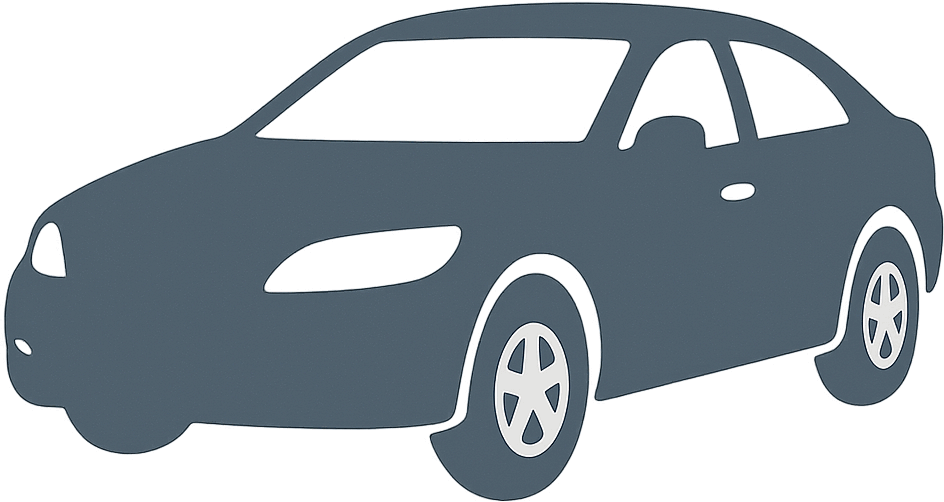
Measurements of the 1992 Hyundai Grandeur II, engineered for optimal performance and comfort
| Dimensions | |
|---|---|
| Length: | 4980 mm196.1 in16.3 ft |
| Width: | 1810 mm71.3 in5.9 ft |
| Height: | 1435-1445 mm56.5-56.9 in4.7-4.7 ft |
| Ground Clearance: | 160 mm6.3 in0.5 ft |
| Trunk Capacity: | 460 liter16.2 cu ft |
| Weight Specifications | |
| Curb Weight: | 1520-1760 kg3351-3880 lbs |
| Tire Specifications | |
| Rims Sizes: |
|
| Tire Sizes: |
|
The Hyundai Grandeur II (LX), produced between 1992 and 1998, is a mid-size sedan that marked a significant evolution in Hyundai's luxury car lineup. Known also as the Hyundai Azera in some markets, this second-generation Grandeur model offered a well-balanced blend of exterior dimensions, interior comfort, and practical features suitable for family or executive use.
In terms of size, the Grandeur II measures 4980 mm (196.1 inches) in length, providing a spacious cabin and commanding road presence typical of full-size sedans in the 1990s. The width stands at 1810 mm (71.3 inches), ensuring ample shoulder room inside while maintaining manageable maneuverability on urban roads. Height ranges from 1435 to 1445 mm (56.5 to 56.9 inches), contributing to a sleek, elegant profile without compromising headroom.
Curb weight varies between 1520 and 1760 kg (3351 to 3881 lbs) depending on equipment and trim level, reflecting the solid build quality and safety features of the era. Ground clearance is set at 160 mm (6.3 inches), striking a balance between ride comfort and road handling capability.
The luggage capacity is a practical 460 liters (16.2 cubic feet), ample for everyday needs and weekend trips, making the Grandeur II suitable for both family outings and business travel.
Wheel and tire options for this model include rims sized 14, 15, and 16 inches, paired with a variety of tire dimensions such as 205/65 R15, 205/60 R16, 215/65 R15 H, and 195/70 R14 H – highlighting versatility in tire setups and the potential for a comfortable yet stable ride.
Overall, the Hyundai Grandeur II (LX) sedan from 1992 to 1998 combines classic mid-90s design with practical size metrics, offering a comfortable, spacious vehicle for drivers seeking both style and function in a luxury sedan format.
Discover the standout features that make the 1992 Hyundai Grandeur II a leader in its class
Have a question? Please check our knowledgebase first.
The Hyundai Grandeur II (LX) sedan, produced between 1992 and 1998, measures 4980 mm (196.1 inches) in length, 1810 mm (71.3 inches) in width, and its height ranges between 1435 mm (56.5 inches) and 1445 mm (56.9 inches). These dimensions give it a spacious and comfortable footprint suitable for a full-size sedan of its era.
The curb weight of the Hyundai Grandeur II (LX) ranges from 1520 kg (3351 lbs) to 1760 kg (3881 lbs), depending on trim and equipment. This weight classifies it as a mid-weight sedan, providing a balance between stability and fuel efficiency, with a solid ride quality that contributes to occupant comfort without compromising agility.
The 1992-1998 Hyundai Grandeur II (LX) offers a luggage capacity of 460 liters (16.2 cubic feet). This trunk space is ample for family trips, groceries, and luggage, providing enough room to accommodate large suitcases or several shopping bags, making the vehicle practical for daily activities and longer journeys.
The Hyundai Grandeur II (LX) has a ground clearance of 160 mm (6.3 inches). This moderate ride height is sufficient to navigate typical city and highway conditions comfortably, while still managing minor bumps and uneven surfaces without risking damage to the undercarriage, ensuring a smooth and confident drive.
This generation of Grandeur came with rim sizes of 14, 15, and 16 inches, paired with tire sizes such as 205/65 R15, 205/60 R16, 205/65 R15 H, 215/65 R15 H, and 195/70 R14 H. Larger rims generally contribute to improved handling and sportier aesthetics, while smaller rims offer superior comfort and cushioning over rough roads, allowing owners to choose based on preferences.
With a length of 4980 mm (196.1 inches) and width of 1810 mm (71.3 inches), the Hyundai Grandeur II (LX) is relatively large for a sedan but will fit comfortably into most standard residential garages, which typically measure around 6 meters (200 inches) depth and 3 meters (118 inches) width. Owners should ensure adequate space for door opening and movement around the vehicle, but overall, it is compatible with standard garages.
Compared to its predecessor, the Hyundai Grandeur II (LX) is slightly larger, featuring an extended length of 4980 mm vs. the previous model's approximate 4850 mm, and a similar width but with improved interior space. This increase in size resulted in enhanced passenger comfort and cargo capacity, reflecting Hyundai's effort to move the Grandeur more firmly into the full-size luxury sedan segment.
In the early 1990s, the Hyundai Grandeur II (LX) matched well against contemporaries like the Toyota Cressida and Nissan Maxima in terms of length and interior space. Its 4980 mm length and 460-liter trunk offered competitive roominess. While it provided solid build quality and comfort, it stood out for offering a large sedan experience at a typically lower price point, making it a strong contender in the executive sedan segment.
The Hyundai Grandeur II (LX) was designed with emphasis on spaciousness and comfort. Thanks to its extended length and width, passengers enjoy ample legroom and headroom in both front and rear seats. The height ranging between 1435-1445 mm contributes to a comfortable cabin environment. The thoughtful layout and quality materials elevate its premium feel for a sedan of its time.
The 1992-1998 Hyundai Grandeur II (LX) combined elegant exterior styling with a comfortable and refined interior. Its full-size sedan proportions, moderate weight, and solid engineering resulted in smooth driving dynamics suited for both city and highway use. Engine options and technology of the period focused on reliability and comfort rather than outright sportiness, making it popular among buyers seeking a luxury-feeling vehicle that prioritized comfort and practicality.
Discover similar sized cars.
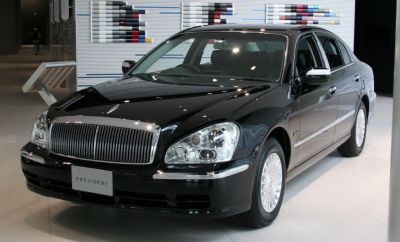
| Production: | 2003-2010 |
|---|---|
| Model Year: | 2003 |
| Length: | 5070 mm199.6 in |
| Width: | 1840 mm72.4 in |
| Height: | 1500 mm59.1 in |
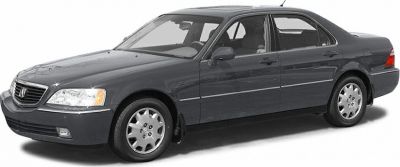
| Production: | 1995-2004 |
|---|---|
| Model Year: | 1996 |
| Length: | 4980-4995 mm196.1-196.7 in |
| Width: | 1810-1822 mm71.3-71.7 in |
| Height: | 1435 mm56.5 in |
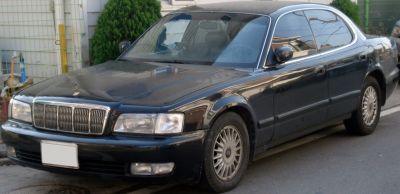
| Production: | 1997-2002 |
|---|---|
| Model Year: | 1997 |
| Length: | 5020 mm197.6 in |
| Width: | 1810 mm71.3 in |
| Height: | 1435 mm56.5 in |
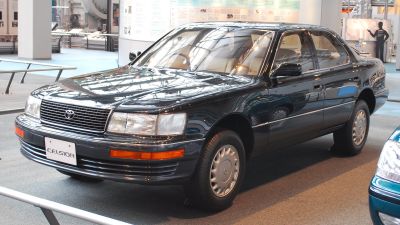
| Production: | 1989-1994 |
|---|---|
| Model Year: | 1990 |
| Length: | 4995 mm196.7 in |
| Width: | 1820 mm71.7 in |
| Height: | 1425 mm56.1 in |
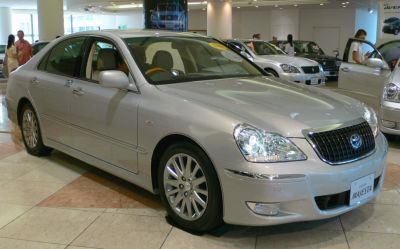
| Production: | 2006-2009 |
|---|---|
| Model Year: | 2006 |
| Length: | 4975 mm195.9 in |
| Width: | 1795 mm70.7 in |
| Height: | 1465 mm57.7 in |
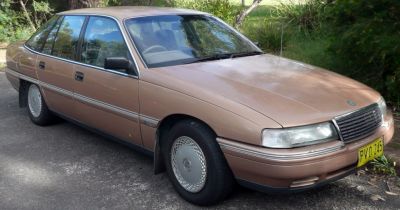
| Production: | 1990-1998 |
|---|---|
| Model Year: | 1990 |
| Length: | 4989 mm196.4 in |
| Width: | 1794 mm70.6 in |
| Height: | 1463 mm57.6 in |
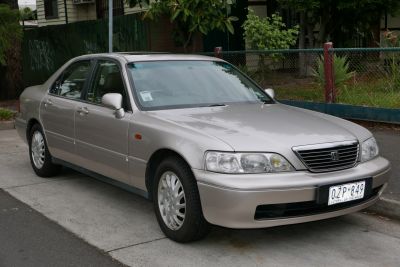
| Production: | 1996-2006 |
|---|---|
| Model Year: | 1996 |
| Length: | 4995 mm196.7 in |
| Width: | 1820 mm71.7 in |
| Height: | 1430 mm56.3 in |
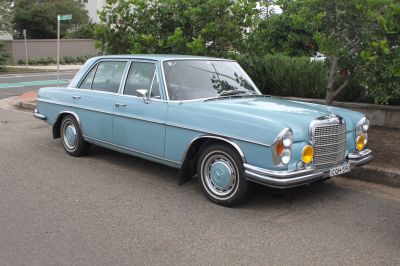
| Production: | 1970-1972 |
|---|---|
| Model Year: | 1971 |
| Length: | 5000 mm196.9 in |
| Width: | 1810 mm71.3 in |
| Height: | 1440 mm56.7 in |
